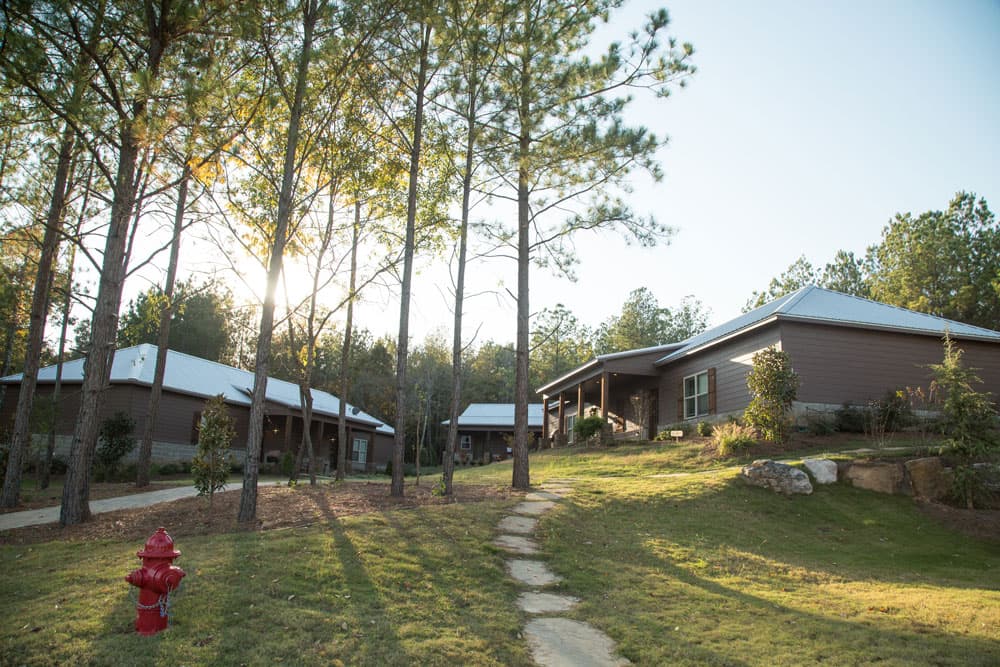Addiction Treatment for the LGBTQ Community
Addiction is a complex disease, affecting each person differently with multiple variables contributing to its onset and perpetuation. As such, treatment and recovery are highly personal and individual. Specialized treatment that caters to the specific needs and circumstances of a person can be vital to achieving sobriety and maintaining a healthy life that is free from drugs and alcohol. Programs that are designed to suit certain population groups and demographics can help a person to feel secure and better able to focus on healing during treatment and into recovery. For example, many addiction treatment programs are gender-specific, or focused on treating adolescents or the elderly. Specialized programs are also available for members of the lesbian, gay, bisexual, transgender, and queer (or questioning identities) community, otherwise known as the LGBTQ community.
The Substance Abuse and Mental Health Services Administration’s (SAMHSA’s) A Provider’s Introduction to Substance Abuse Treatment for Lesbian, Gay, Bisexual, and Transgender Individuals reports that members of the LGBTQ community are more likely to abuse alcohol and drugs, have higher rates of abuse, are less likely to abstain from using substances, and have a higher incidence of heavy drinking into later life. During addiction treatment, individuals within this demographic may feel more comfortable surrounded by others who are empathetic and can relate to the special circumstances that may impact members of this community. Trained professionals who are sensitive to the specific struggles and prejudice an LGBTQ person may face can help to provide a safe and healing environment for recovery.
Factors That Contribute to Drug and Alcohol Use in the LGBTQ Community
The following can be contributing factors for substance abuse in this community:
- Lack of peer support and exclusion from social events or groups
- Social rejection and isolation
- Social rejection and isolation
- Physical abuse as the result of sexual orientation or gender identification
- Fear of coming out to family and friends
- Pressure from spiritual organizations to conform
- Depression, anxiety, and suicidal thoughts
What drives a person to use substances, the types of substances used, and the method of use are important factors to understand in order to prevent relapse and control cravings in the future. Determining and uncovering potential triggers for substance abuse and self-destructive behaviors can help a person to avoid these behaviors and actions in the future. Individuals within the LGBTQ community often face many pressures and stressors in everyday life.
Drugs and alcohol can be a form of self-medication for high levels of stress and anxiety. They can also increase sociability and may make a person feel like they “fit in” better when using them.
SAMHSA reports that members of the LGBTQ community may use substances differently than the general population, and methamphetamine, “club drugs” like ecstasy, “poppers,” ketamine, GHB, marijuana, psychedelics, hallucinogens, cocaine, barbiturates, sedatives, stimulants, and alcohol are common substances of abuse. Many of these drugs increase risk-taking behaviors and can lead to potentially dangerous sexual encounters, which can up the odds for developing a sexually transmitted disease such as HIV/AIDS, the Centers for Disease Control and Prevention (CDC) warns.
In addition to high levels of stress and discrimination, biological and genetic factors can also play a part in the onset of addiction and problematic substance abuse. A family history of addiction, underlying medical and/or mental health conditions, and involvement of certain regions of the brain can be contributors. Individuals who use drugs or alcohol at a young age, before the brain is fully formed, also put themselves at a higher risk for suffering from issues surrounding drugs and alcohol later in life.
Specialized Facilities and Programs
 In general, there are two main types of treatment programs for addiction: those that offer services on an outpatient basis and those where a person stays on site for the duration of the program, known as inpatient treatment. Both of these types of treatment programs will offer a wide range of services and amenities depending on what may be most beneficial in promoting and enhancing recovery. For example, when someone uses a large amount of drugs or alcohol for a long time, they are likely physically dependent on them and will first need detox services to manage cravings and withdrawal symptoms as these substances are processed safely out of the body. After detox, individuals will then enter into a comprehensive addiction treatment program.
In general, there are two main types of treatment programs for addiction: those that offer services on an outpatient basis and those where a person stays on site for the duration of the program, known as inpatient treatment. Both of these types of treatment programs will offer a wide range of services and amenities depending on what may be most beneficial in promoting and enhancing recovery. For example, when someone uses a large amount of drugs or alcohol for a long time, they are likely physically dependent on them and will first need detox services to manage cravings and withdrawal symptoms as these substances are processed safely out of the body. After detox, individuals will then enter into a comprehensive addiction treatment program.
The National Institute on Drug Abuse (NIDA) publishes that there are more than 14,500 specialized treatment centers for drug addiction in the United States. Each one may have different offerings and levels of care.
It is important to undergo a detailed and thorough evaluation and assessment prior to entering into an addiction treatment program to ensure that the program is the right fit. For instance, a transgender individual may not feel as comfortable in a residential setting when housed with others of the same birth gender and may be more at ease surrounded by the gender they identify with. As social perceptions shift, more facilities and programs may be becoming increasingly sensitive to the specific needs of someone within the LGBTQ community. As the National Institute on Alcohol Abuse and Alcoholism (NIAAA) reports, the LGBTQ population is just as diverse within itself as the general population; therefore, it is vital to not only be sensitive to particular concerns specific to individuals within this community, but also to know that treatment is not “one size fits all” either.
Behavioral therapies are often considered an integral part of an addiction treatment program as they serve to help individuals work through personal struggles and improve self-reliance, self-esteem, and healthy coping mechanisms for stress. Addiction, especially among a minority and socially stigmatized population, can be socially isolating as individuals withdraw from family and friends.
During addiction treatment, therapy sessions typically include group sessions that include various people with similar concerns and struggles. Support groups are also generally formed during treatment, which can help a person to build a healthy social network of peers with similar goals and experiences. These groups can provide hope and encouragement, and help to prevent relapse.
It’s never too late to reach out for help. If you or someone you love is struggling with the devastating side effects of addiction and are unsure of where to turn, call us today at . Oxford Treatment Center, American Addiction Centers’ Mississippi drug and alcohol rehab facility, is ready to help you get the treatment you need today.
Mental Health Support
 Members of the LBGTQ community may struggle with high levels of stress surrounding their sexual orientation and coming out; fears of acceptance; struggles with prejudice, bias, and discrimination; and a lack of peer and family support. This can make an LGBTQ person around three times more likely to battle a mental health condition; at a higher risk for suicidal ideations, thoughts, and actions; and more likely to struggle with drug and alcohol abuse, the National Alliance on Mental Illness (NAMI) reports. Optimal treatment for co-occurring disorders is typically integrated and provided by a team of trained substance abuse, mental health, and medical providers.
Members of the LBGTQ community may struggle with high levels of stress surrounding their sexual orientation and coming out; fears of acceptance; struggles with prejudice, bias, and discrimination; and a lack of peer and family support. This can make an LGBTQ person around three times more likely to battle a mental health condition; at a higher risk for suicidal ideations, thoughts, and actions; and more likely to struggle with drug and alcohol abuse, the National Alliance on Mental Illness (NAMI) reports. Optimal treatment for co-occurring disorders is typically integrated and provided by a team of trained substance abuse, mental health, and medical providers.
Being a member of a minority group, such as the LGBTQ community, may also make an individual less likely to seek out care and be honest with mental health and medical providers. For these reasons, a treatment program that is specifically designed to provide care for members of the LGBTQ community can be highly beneficial.